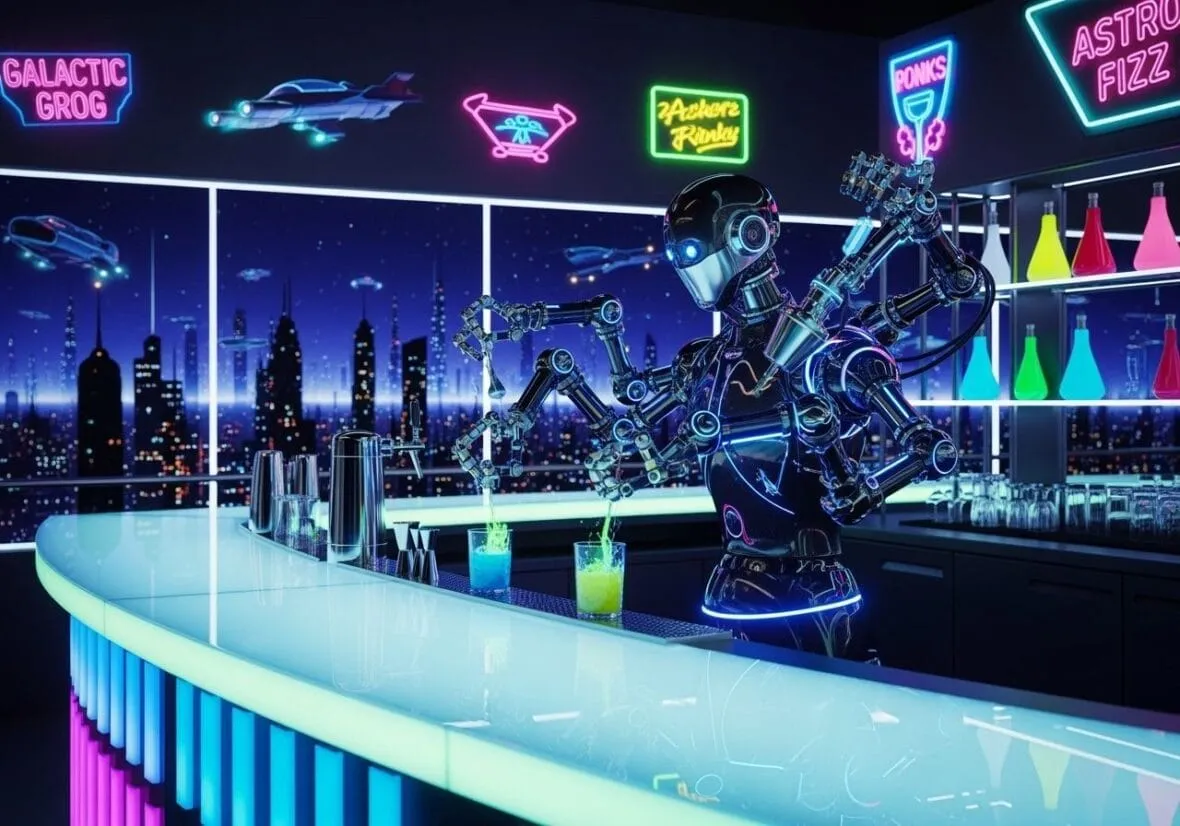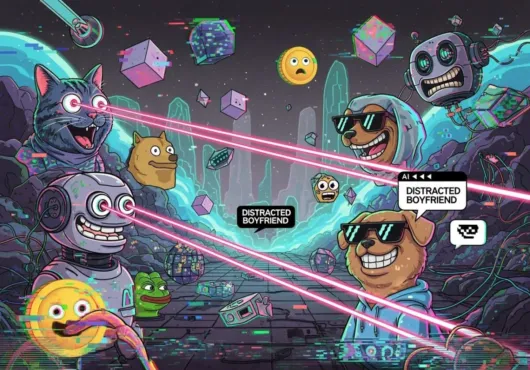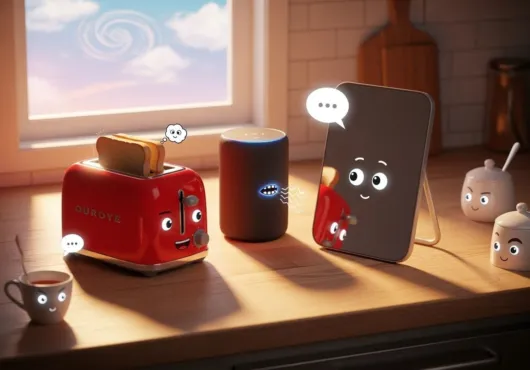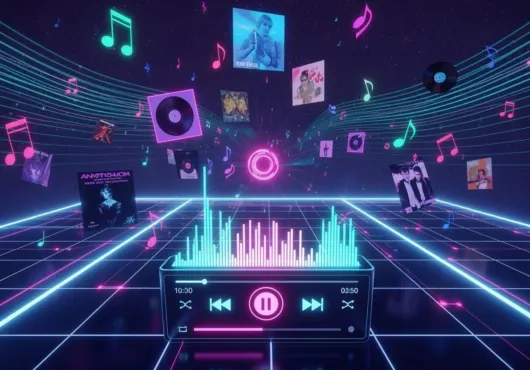(“Make it low-cal, extra spicy, half-sweet—oh, and surprise me.”)
Like What You Read? Dive Deeper Into AI’s Real Impact.
Keep Reading- AI bartenders crush precision, but choke on vibe-based orders.
- Zero small talk = zero soul. Cocktail chemistry is easy; reading drunk humans is Advanced Calculus.
- Verdict: Fun gadget, solid Instagram bait—just don’t expect it to handle your quarter-life crisis in a glass.
The Rise of the Robo-Bar
Silicon Valley looked at bartending—a sacred mix of small talk and questionable pour counts—and said, “Yeah, an algorithm can shake that.” Enter the AI mixologist: a chrome tower of pumps, LEDs, and smug efficiency promising perfect drinks and zero judgment. Pop in your order via touch-screen, watch servo arms swirl neon liquids, and voilà—cocktail by code.
But we all know the real test isn’t speed; it’s whether this steel sommelier can survive the chaos of human customers. Let the stress test begin.
Scenario One: The “Surprise Me” Gambler
Customer: “Something tropical but not sweet, citrusy but no lime, light on booze but still strong.”
AI: Filters 18,000 recipes, returns AI-Colada Lite™—a pale yellow mystery that tastes like diet sunscreen.
Result: Customer politely nods, tips zero, vows never to trust robots with vibe-based instructions again.
Scenario Two: The Influencer Livestream
Ring-light on, followers watching, she orders “the most photogenic gradient mocktail.” AI detects RGB values, layers liquids with millimeter precision, spritzes edible glitter. Looks like a cosmic sunset—tastes like mouthwash and regret. But hey, it pops on TikTok.
Scenario Three: The Allergic Alarm Bell
“Rum and Coke, but I’m deathly allergic to cane sugar, artificial sweeteners, gluten, and Tuesdays.”
AI triggers its ingredient-flag subroutine, performs a database search, and dispenses… chilled water with a peppermint garnish. Error avoided, lawsuit dodged, customer unsatisfied.
Why Robots Still Struggle With Your Drunk Rambling
Fuzzy inputs: Humans speak in vibes (“make it taste like a beach breakup”). CPUs prefer decimals.
Personal banter: A bartender’s side-eye is half the experience. A tablet asking for your mother’s maiden name? Not so much.
Recipe roulette: Real bartenders riff on the fly; algorithms play book-perfect jazz—but only in the key of predetermined.
Upsides We Can’t Ignore
Precision pours: No heavy-handed tequila “oops.”
Biofeedback integration: Sensors could tweak ABV based on your rising heart rate—“Buddy, you’re cut off.”
Endless memory: Remembers that weird order you made once at 1 a.m.—and will never judge you for it (maybe).
Final Splash: Will the Real Bartender Please Stand Up?
AI mixologists nail consistency, but they can’t fake the conspiratorial wink, the free sympathy shot, or the gentle “You sure about texting your ex?” In the end, great drinks are 50 % recipe, 50 % ritual harassment, and a dash of gossip. Until the server rack learns to talk you out of karaoke, I’ll keep my awkward order in human hands—lipstick-smudged jiggers and all.
Ready for more mind-bending AI critique?
Continue with “AI in Schools…” →


